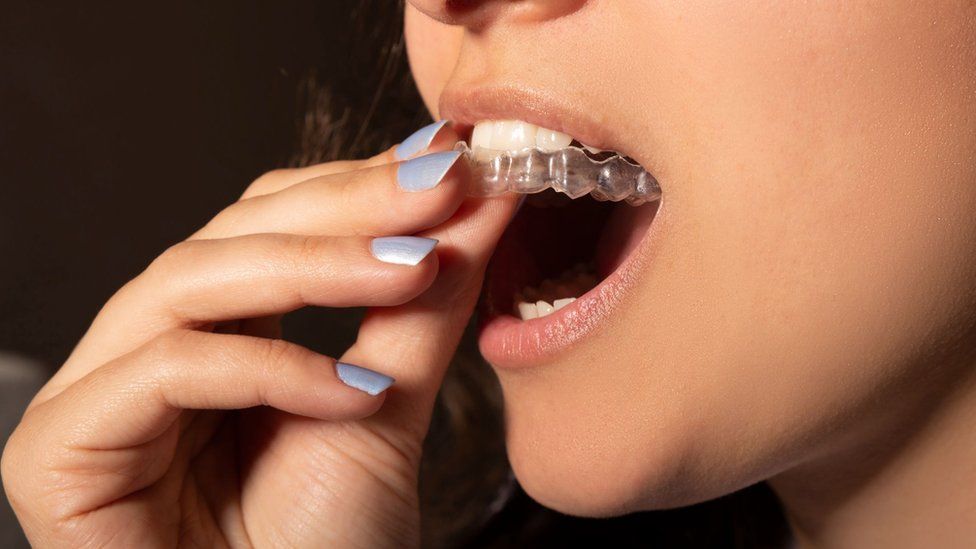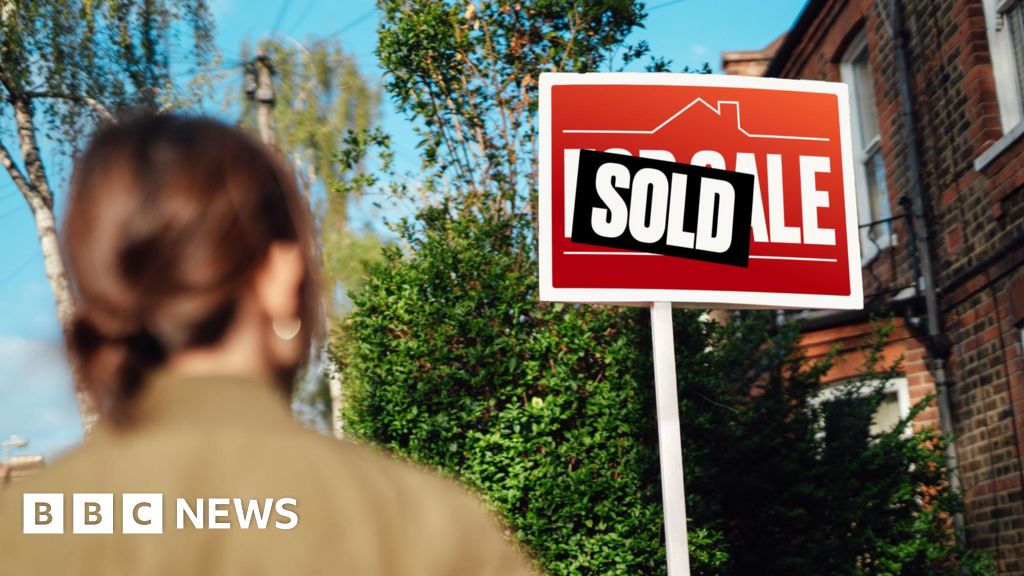ARTICLE AD BOX
 Image source, Getty Images
Image source, Getty Images
Smile Direct Club served more than 2 million people before it went bust
By Natalie Sherman
Business reporter, New York
Mohammad Ahmad, a 17-year-old from New Jersey, signed up for Smile Direct Club in October, just a few weeks after the teeth straightening firm declared bankruptcy.
He was enticed, he said, by a big discount on the company's invisible braces and assured that the financial problems wouldn't affect operations.
But Mohammad never received the clear plastic aligners he was promised after the company shut down in December, leaving him, and thousands of customers like him, in the lurch.
"I basically got scammed," said Mohammad, who is still hoping for a refund of $1,000 (£788) from money he earns as a tutor.
It was an ignominious end to the Tennessee-based business, which once had a market value of more than $8bn and had promised to disrupt traditional dentistry with lower cost, remotely- supervised care.
The concept convinced more than two million customers. For Mohammad, who had already had braces, he just wanted to address some mild shifting that occurred after he failed to wear his retainer as instructed.
But almost from its start, Smile Direct Club was defending itself from critics raising concerns about its practices.
It was embroiled in legal battles with business groups representing traditional dentists and orthodontists, who said its remote treatment, often provided after customers mailed in impressions of their mouths they had taken at home, provided inadequate care, and accused the firm of misleading customers.
Prominent investors, such as Hindenburg Research, which is known for betting against companies, had also voiced alarm, accusing Smile Direct Club of "cutting corners" and warning that it would "wind up as a case study in why it's a bad idea to invest in a company that attempts to fit a complex, dangerous medical process onto a low-cost, high volume assembly line".
The company denied the allegations, deriding them as "the latest in a stream of unevidenced and misleading attempts ... to thwart legitimate competition".
But it took the threat to its business seriously, moving aggressively to quash other negative reports.
It threatened legal action against reporters, academics and forced unhappy customers to sign non-disclosure agreements to get a refund until a government lawsuit forced it to end the practice this year.
The problems eventually caught up with Smile Direct Club, said Myron Guymon, president of the American Association of Orthodonists.
Image source, Nasdaq
Image caption,The triumphant 2019 Nasdaq listing of Smile Direct Club proved to be the company's peak moment
"Orthodontics looks simple but it is a complex medical procedure and should start with an in-person exam and good diagnostic records," he said.
Smile Direct Club executives did not respond to a request for comment.
In its bankruptcy filing, the company traced its fall to familiar economic villains: the pandemic and rising prices, which it said had hurt its manufacturing operation, raised costs and squeezed its target customers.
It also cited a $63m award a court ordered it to pay its arch-rival and former business partner Align Technology over a contract dispute.
But Brandon Couillard, analyst at Jefferies, said that deeper issues were at play, noting that the cost of addressing reputational issues - not just about quality but also customer service - hurt its growth and forced the loss-making firm to spend too much on advertising.
"It's not hard to Google and find people who have had a bad experience," he said. "As the business matured, people did become more aware of the brand and that wasn't always a positive experience."
Smile Direct Club's triumphant 2019 listing on Nasdaq, the US stock market index, after a streak of explosive sales growth, proved it be the firm's peak moment.
It raised more than $1bn and briefly transformed its young founders into billionaires.
But sales soon started tumbling, falling from more than $750m in 2019 back to $470m last year. Advertising to win new customers consumed more than half of its revenues. Losses mounted.
In September, when it filed for bankruptcy protection, the company had just $5m in cash and nearly $900m in debt.
"It was pretty clear that consumer interest in the brand had been eroding for some time," Mr Couillard said.
Image source, Getty Images
Image caption,Critics of the company said in-person visits are important
Investors later accused Smile Direct Club of omitting important information about its critics during its 2019 share sale, suing it for a breach of financial laws.
But Sanjula Jain, chief research officer at healthcare analytics and research firm Trilliant Health, said Smile Direct Club's downfall is also a reminder of the limits to the market for remote health care, take-up of which her team has found has fallen in almost every area since the height of the pandemic.
"Consumer behaviours are not changing in the way that a lot of the market and virtual care providers want it to," she said. "Will that change over time remains to be seen."
University of Pennsylvania professor Anna Wexler, who has studied direct-to-consumer health firms, said she still sees a future in remote or partially remote orthodontic care, noting that younger generations especially are frustrated with the current health care options and looking for models that are more convenient and affordable.
Her 2020 study of 470 customers who had received remote orthodontistry found that about 6% ended up having to return to a traditional doctor for follow-up treatment.
But more than 87% were satisfied with their care, willing to accept imperfections for a lower cost.
The study cautioned that Smile Direct Club's use of non-disclosure agreements might have skewed the responses.
But Prof Wexler said said she had still expected it and other companies selling such treatment to embrace her findings.
Instead, Smile Direct Club threatened legal action, accusing her team of inaccurately describing its process and defaming its business.
"I was shocked," she recalled, noting that her team had been careful not to identify companies by name.
The clash - which has not been previously reported - ended with a letter to the editor.
Prof Wexler said she was not sorry to see this particular business go, given its track record of trying to silence its critics.
"Maybe if they hadn't spent so much money on legal counsel they'd be in a better financial state," she said.

 1 year ago
43
1 year ago
43








 English (US) ·
English (US) ·